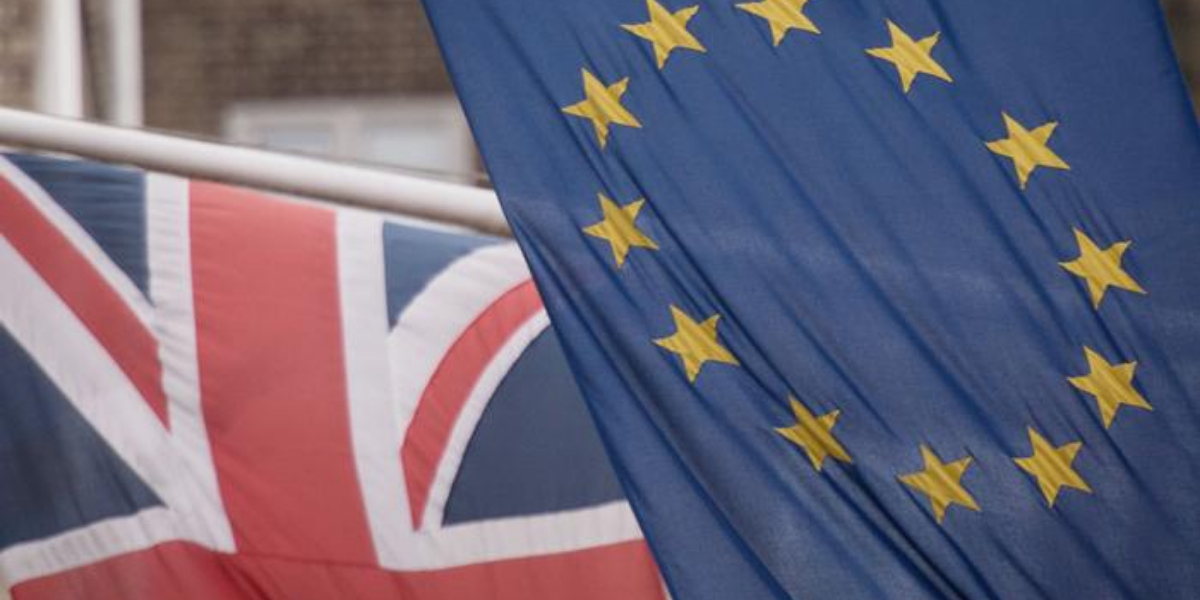The EU is expected to take legal action against the UK government on Wednesday to cancel some post-Brexit trade deals.
Ministers called for an end to current controls on goods shipped from the UK to Northern Ireland so as not to jeopardize the peace process. On Monday, they passed a parliamentary bill aimed at repealing part of the 2020 agreement with the EU.
However, Brussels considers that a return to the pact violates international law. The Northern Ireland Protocol is part of the Brexit Agreement that maintains Northern Ireland in the EU’s single market for goods.
Read More: The European Union is preparing for a trade war that no one wants
This avoids strict border controls with the Republic of Ireland, including the movement of persons and goods. Both the UK and the EU want to avoid peace. However, some goods entering Northern Ireland from other parts of the United Kingdom need to be controlled.
He was opposed by unionists in Northern Ireland, who said it would create a trade border in the Irish Sea and lead to the collapse of Britain. Following the general election in Northern Ireland last month, the United Democratic Party rejected any part of the executive body that will share power with Sin Payne until the protocol is changed.
However, other parts of Northern Ireland, such as Sinpain, the Alliance and the SDLP, accept the agreement as it stands. The UK government would rather agree with the EU on the changes than act on the protocol changes alone.
Read More: European Union seeks to unblock stalled deals
Foreign Minister Liz Truss told BBC Radio Today: “I have been honest in this meeting, but the main issues affecting the political stability of Northern Ireland are set out in the protocol and we need the EU.” I agree to change the text of the protocol. “Otherwise, the talks will not be successful,” he said. “We are at a dead end because we cannot change the main issues with tariffs and VAT that are losing the agreement of the trade union movement in Northern Ireland.”
The UK government’s plans include measures to reduce the impact on business, as defined in the Northern Ireland Protocol, including the concepts of “green jobs” and “red jobs” for trade. The United Kingdom also wants the European Court of Justice (ECJ) based in Luxembourg to no longer play a role in resolving protocol disputes, but to have independent arbitrators to oversee decisions.
In response, the EU announced in March last year that it would reopen a lawsuit accusing the United Kingdom of delaying the implementation of some of its tariff protocol without consultation. He may continue to do so, complaining that the United Kingdom has done too little to set up border checkpoints in the EU and share data with the EU.
The European Commission is expected to sign the next lawsuit at its meeting on Wednesday, and many key EU officials oppose the UK’s plans to rewrite parts of the protocol. Irish Foreign Minister Simon Cowney said: “This is a breach of international law and the UK government’s obligations under international law and will be reflected in a timely manner.”
“It basically violates the protocol,” he added, adding that it “removes protection against serious Brexit violations on the island of Ireland.”
German Chancellor Olaf Scholz said: “Britain has made a very unfortunate decision that contradicts all agreements between the EU and the United Kingdom.” This is also unfounded, as the European Commission has made many practical proposals. ”
Meanwhile, Secretary of State Anthony Blinken urged Johnson to “continue an honest dialogue with the EU.”
Companies importing goods from the UK into Northern Ireland face protocol challenges as they involve the cost and complexity of monitoring and control. Food and vegetable importers face the biggest challenges as they face the strictest controls.
However, exporters have maintained unhindered access to EU markets, unlike other parts of the United Kingdom.

















